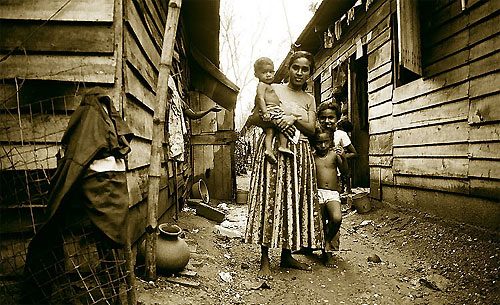|
Act fast for social justice, trilingual policies
Daily Mirror Editorial Feb 14, 2011 | |
 With Sri Lanka in turmoil over Saturday’s unprecedented increase in the prices of the common people’s diesel and kerosene, we need to reflect deeply on what is happening and what needs to be done nearly ten days after the pomp and pageantry for the 64th anniversary of Independence Day. Independent observers and analysts believe there are serious questions over when or whether the government will implement the most important recommendations of the Lessons Learnt and Reconciliation Commission (LLRC) whose report was tabled in parliament about two months ago. It is the understanding of those who have a fair and balanced awareness of the national question that one of the root causes is language. We still see vital areas in the public sector where Sinhala only seems to be predominant. Recently a state bank announcing a holiday did it only in Sinhala and most police officers seem to know only Sinhala though government authorities claim hundreds of Tamil-speaking youth are being recruited to the police service. Even if that is being done it appears to be mainly in the Northern and Eastern Provinces while in other parts of the country a person who does not know Sinhala faces a situation of speaking to the walls in a police station. The 64 years of freedom distorted by insurrections, war and violence have yet not made the government move urgently and effectively in implementing a trilingual policy, despite all the hot air produced by India’s widely respected former President Abdul Kalam when he visited this country recently. Another vital area is social justice and the failure of successive governments to take bold and effective steps to bring about a more equitable distribution of wealth and resources. After 64 years of independence we see millions of people still struggling to find the basic needs of life while for the rich and ruling elite, their millions are becoming billions and their lifestyles are soaring to their illusionary castles in the sky. At least 50 per cent of our people lack food, clothing, shelter, clean water, electricity and a needs-based healthcare and education process. Independent analysts and observers also ask whether Sri Lanka is more dependent than independent having to depend on imports to meet the needs of the people. Sri Lanka also needs the support of many nations to meet the challenges of other nations which are still highly critical of the alleged war crimes in the last month of the conflict and want to haul Sri Lanka before the United Nations Human Rights Council if not an international criminal court. Some economic analysts are also alleging that even last Saturday’s shocking fuel price hike, the devaluation of the rupee and the decision to virtually allow the rupee to float were linked to the recent talks with the International Monetary Fund (IMF) with controversy over whether the government wants or does want the last instalment of the IMF loan. These realities call for the silent majority to wake up from the slumber in their comfort zones and for the leaders of all religious communities to come together regularly to take a stand. They must insist that the government should act fast in healing those wounded and hurting because of political, economic and ethnic reasons. If development is to have a solid foundation and be sustained, it must give priority to human development and that must take place in all areas from the South to the North and West to the East. Source: Daily Mirror - Sri Lanka
|
|